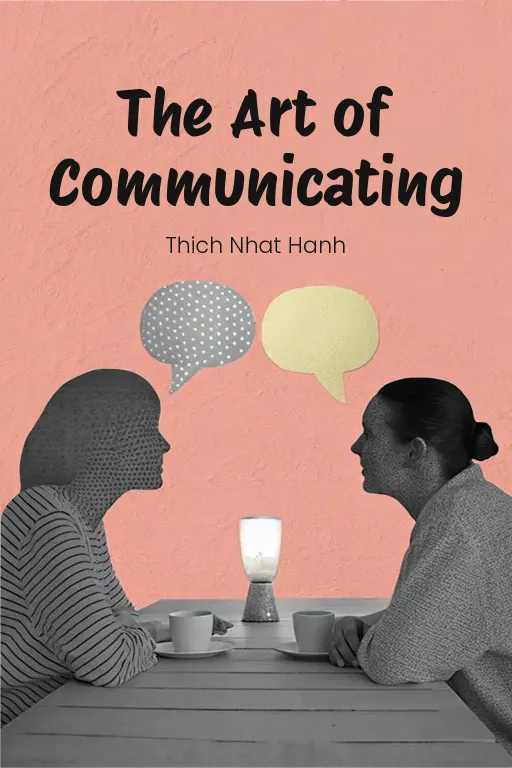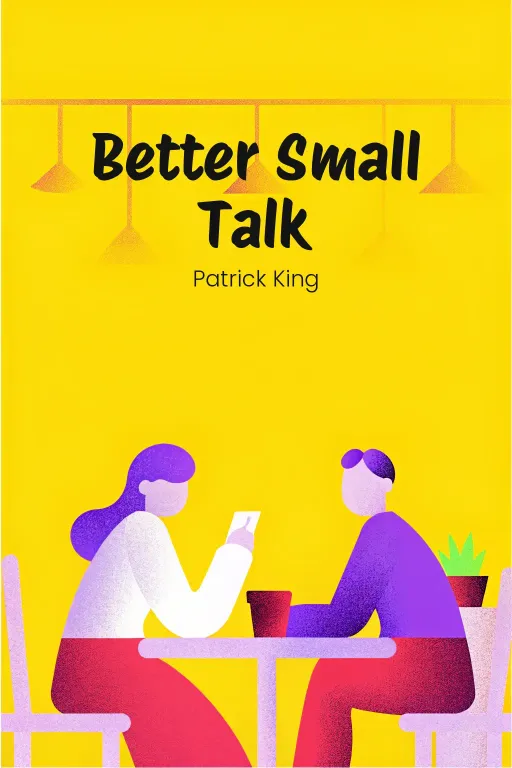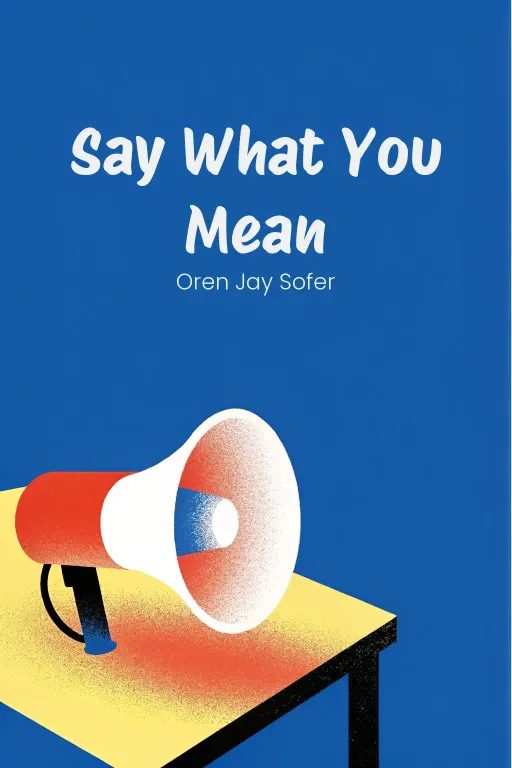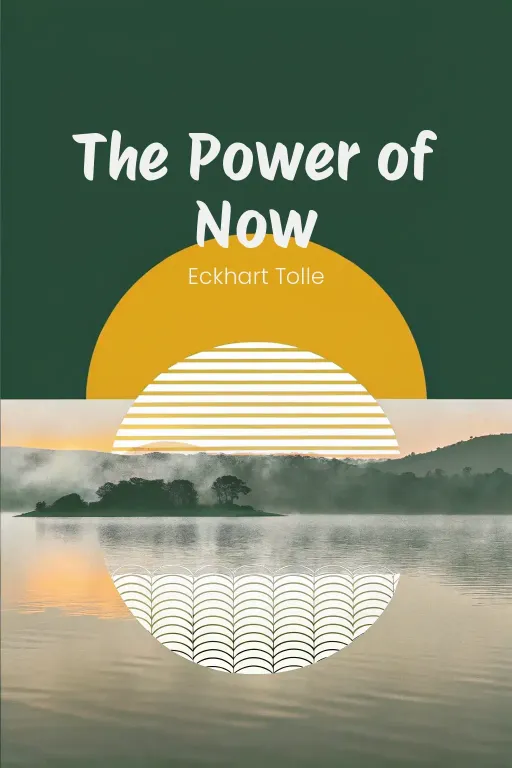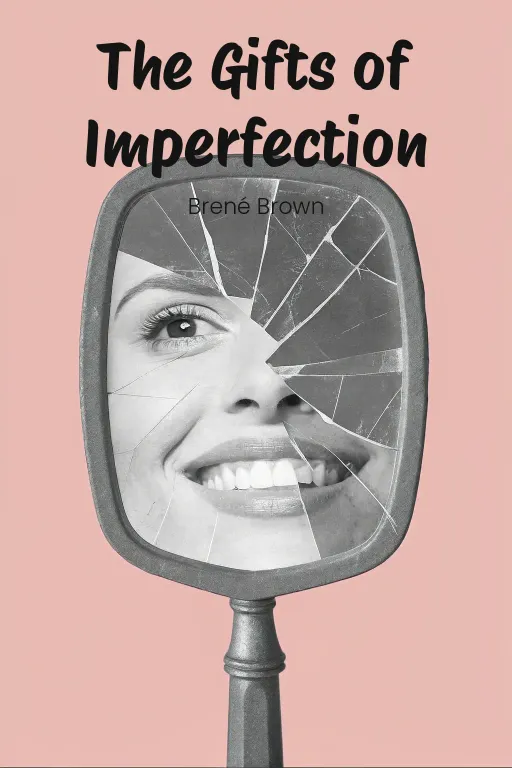
Words That Heal: Transform Relationships Now!
Podcast by Beta You with Alex and Michelle
The fascination of mindfulness in our daily lives
Words That Heal: Transform Relationships Now!
Part 1
Alex: Hey everyone, welcome back! Today we're talking about something fundamental to, well, everything: communication. Seriously, think about it. How often do your words actually bring people closer, and how often do they just...stir things up? Michelle: Yeah, or let's be real, Alex, how often do they just kinda... escape? I mean, hasn't everyone blurted something out they instantly regretted? I know I have. Alex: Exactly! And that's why we're diving into Thich Nhat Hanh's "The Art of Communicating." It's not just another communication skills book. This is a total rethink of how we connect, using mindfulness and compassion as our, uh, operating system, I guess you could say. Michelle: Okay, so it's not just about dodging those awkward silences or, you know, "winning" arguments. We're talking about building actual, genuine harmony with the people in our lives. Alex: Precisely. Hanh teaches us how things like deep listening and, well, “loving” speech can heal hurt feelings, sort out conflicts, and really solidify our relationships. It’s not just chatting; it’s building a legacy of compassion, one conversation at a time. Michelle: Okay, sounds…ambitious, to say the least. A bit abstract too, right? Are we going to get into the nitty-gritty today? Alex: Definitely. We’re going to start with the key ideas – what it “really” means to listen deeply and speak with love. Then, we'll explore the hands-on tools Hanh offers – things like mindfulness exercises, rituals, and strategies for navigating disagreements. And finally, we’ll look at the bigger picture: how mindful communication can actually foster peace, from our families to our communities, and even beyond. Michelle: So, learn, practice, ripple effect, got it. Sounds almost too simple – on paper, anyway. Alex: True, Michelle. But these are seeds we can all plant. And today, we’re going to break down how to nurture them, step by step.
Foundations of Mindful Communication
Part 2
Alex: Okay, Michelle, so to start, what do you think makes Thich Nhat Hanh’s approach to communication so special? I mean, isn't communication just about clearly saying what you want to say? Michelle: Well, that’s what I always thought! So, Alex, what’s the big deal? What makes his approach “transformative,” as they say? Alex: It’s transformative because, yes, clarity is important, but Hanh “really” emphasizes the energy and responsibility behind our words. He says every word has the power to heal or hurt—like planting seeds, “really”. Michelle: Seeds, huh? So it's less about the dictionary definition and more about…are you planting flowers, or are you introducing invasive species? Alex: Exactly. It’s about being mindful before you even speak. Hanh talks about a child overhearing their parents arguing. Even if they're not involved, the negative energy can leave a mark. That's how powerful our communication is, and how responsible we need to be. Michelle: Okay, but what if you don’t even realize you’re planting the bad seeds? I mean, most of the time we’re just on autopilot. Alex: That’s the core issue. We’re often unaware of the impact of our words. That’s where mindfulness comes in. By being present, we can pause and ask: Do I need to say this? Is it kind? Michelle: Ah, the old "Is it necessary?" test. My mom would always give me that look before I made a sarcastic comment. Usually, it wasn't necessary. Alex: Exactly! Hanh wants us to take responsibility for our communication. Words aren’t harmless; they “really” do shape how people feel about themselves, about us, and the world around them. Michelle: Alright, I get it. Be mindful of what you say. But what about listening? You mentioned "deep listening" earlier. What's so pivotal about that in Hanh's view? Alex: Deep listening is key. Instead of just hearing words or planning your response, you listen fully, trying to understand. Hanh calls it "the gift of your presence." Michelle: Sounds…nice, but difficult. Especially if you’re talking to someone annoying or someone saying something you strongly disagree with. Alex: Definitely challenging, especially when emotions are high. But if we approach conversations with empathy, it becomes less transactional and more healing. Hanh shares a story in the book. Michelle: Oh? I'm listening. Alex: He talks about a woman at one of his retreats, “really” frustrated with her marriage, almost ready to give up. Through deep listening, she realized that they weren't “really” hearing each other, or understanding each other's struggles. Michelle: So she stopped focusing on her own problems and started seeing what he was going through too? Alex: Precisely. It’s about connecting, not reacting. By approaching him with openness, she helped rebuild their trust and understanding. Michelle: Okay, that’s great, but most arguments turn into a blame game, right? "You said this," "Well, you did that," until everyone's worn out. Alex: Right, and Hanh would say that's because we don't give ourselves time to process our emotions first. That's where things like mindful breathing come in. Michelle: Mindful breathing? Seriously? So if I'm in a heated argument, about to explode, I should just…stop and breathe? Won't the other person think I’m being dismissive? Alex: Actually, pausing shows self-control and respect. Hanh compares strong emotions to raw potatoes. They're hard to swallow. But if you cook them, they become nourishing. Michelle: A potato metaphor, huh? Okay, I'm tracking. So breathing is the…stove? Alex: Exactly. It transforms those raw emotions into something less harmful. Even three deep breaths can give you a moment to ask yourself: Why am I angry? How can I communicate without making things worse? Michelle: Got it. So, instead of blurting something out, you breathe, and maybe you even realize you don't need to say anything at all. Alex: Sometimes, silence is the most mindful response. And when words are needed, mindful breathing helps ensure they come from a place of calm. Michelle: Okay, so we’ve got mindful speech, deep listening, and breathing. What’s the takeaway? Alex: It’s about seeing communication as nourishment, not just an exchange of information. Every conversation is a chance to build emotional well-being or cause damage. Hanh wants us to be as careful about our communication as we are about our diet. Michelle: So, like junk food harms your body, "junk communication" harms relationships. Got it. Alex: Right. By practicing deep listening and mindful breathing, we create a foundation for healthier, more compassionate interactions—not just in personal relationships, but in communities and even globally. Michelle: So, mastering these basics is like preparing the soil. If you have a solid foundation of mindful communication, everything else—trust, empathy, conflict resolution—becomes easier. Alex: Exactly! It’s about planting seeds of understanding. And this is just the beginning - these principles can be applied in all sorts of practical ways.
Practical Applications in Relationships
Part 3
Alex: So, as we've built this foundation, it’s natural to move into how we actually nurture relationships through these mindful interactions. It really bridges the gap between theory and practice, showing how mindful communication can actually heal and bring people together. Michelle: Okay, let’s get practical. We’ve got deep listening and loving speech as the foundation, but what does that look like in the real world? Imagine you're in a tricky situation with someone – a partner, a family member – how do you even start? Alex: Well, that's where deep listening meets loving speech. They’re really the cornerstones. When you use them together, you create a space where everyone feels safe, heard, and truly understood. Michelle: So, loving speech isn't just about saying nice things; it's about carefully choosing your words to diffuse tension, right? Alex: Exactly! It’s about reframing things to prioritize connection. Instead of saying, "You “never” listen to me," which is accusatory, you could say, "I feel unheard, and I'd really value your thoughts on this." It shifts the whole dynamic from blame to openness. Michelle: Does this really work, though? I mean, wouldn’t someone just get defensive anyway? Alex: It's not a magic bullet, but it does soften the edges and creates an opening for dialogue. Thich Nhat Hanh tells a story about a woman at one of his retreats who was ready to leave her marriage. She thought her husband was cold. But through deep listening, she realized he was dealing with his own hidden struggles, things she'd missed because she was so caught up in her own frustrations. Michelle: So, she got a broader perspective, not just her own hurt. Alex: Exactly. And by approaching him with loving speech, acknowledging his pain, they created space for understanding. They started healing, not by ignoring the conflict, but by addressing it with compassion. Michelle: Alright, that’s a great story. But what if you're not at a retreat with a guru? How do you find that level of mindfulness at home, especially when emotions are running high? Alex: That’s where tools like writing love letters come in. When direct conversations are too charged, writing things down can help you organize your thoughts and express yourself calmly. Michelle: A love letter? That's probably the last thing on most people’s minds when they're upset. Alex: True, but it’s not the romantic kind you’re thinking of. It’s about honesty and vulnerability. You might write, "I appreciate your support, but when you dismissed my feelings yesterday, it really hurt." It's a chance to reflect on both gratitude and pain, and give the other person a chance to understand without feeling attacked. Michelle: I can see how that could work. You're not interrupting each other, and writing forces you to slow down and think. Alex: Exactly. It’s a process that brings clarity to both of you. And it’s not just for romantic relationships! Someone in Hanh's teachings wrote a letter to a parent they had issues with. It helped them process years of frustration and paved the way for reconnection. Michelle: I like that it's a low-pressure way to express difficult emotions. But what if words just aren't enough? Sometimes, even the best-chosen phrases don't really convey what you’re feeling. Alex: That’s where Hanh’s hugging meditation can be a game-changer. It’s a non-verbal practice where you embrace and take three deep, synchronized breaths. The first breath brings you to the present. The second cultivates gratitude for the other person. And the third deepens your connection by silently expressing care. Michelle: Okay, a "hugging meditation" sounds a little too…wholesome to work in real arguments. Wouldn’t that just be awkward in a tense situation? Alex: It might feel strange at first, but its power is in its simplicity. Hanh tells of a father and son who barely spoke for years, that did that in a retreat, and the barriers broke down between them. It helped them to show mutual care and acknowledgement beyond any words. Michelle: So, it's not about solving everything right then and there, but about creating a pause, an opportunity for future healing. Alex: Exactly. When words fail, actions like that can bridge the gap. Shared breaths during a hug may seem small, but they build trust and safety, which enables deeper communication later. Michelle: I can see how that would work for close relationships, but what about situations with ongoing conflict, where it seems like one misunderstanding leads to another? Is there a method for that? Alex: Absolutely. That brings us to the "Beginning Anew" ritual – one of Hanh's most practical tools for conflict resolution. It’s a three-step process for cultivating gratitude, accountability, and constructive dialogue. Michelle: Structured conflict resolution? Okay, walk me through it. Alex: Step one: "watering flowers," which means expressing gratitude. Acknowledge something positive about the other person. "I admire how you always try to keep us connected," for example. It sets a collaborative tone. Michelle: Start with the good stuff so the other person doesn't get defensive right away. What's next? Alex: Step two is sharing regrets. Own up to your shortcomings. "I regret losing my temper yesterday," for instance. It shows accountability, which helps the other person to let down their guard. Michelle: And I bet step three is where the feelings really come out. Alex: Right, but it's about doing so constructively. Share how you felt without assigning blame. For example, "When plans changed last minute, I felt unimportant. I'd like us to communicate better next time." It's honest, but not confrontational. Michelle: Managed vulnerability – direct, but not an attack. I like that. Alex: Exactly. And when done mindfully, these steps lay the groundwork for resolution, not resentment. Michelle: Sounds effective, but let’s be real, not every disagreement happens calmly. Sometimes things escalate FAST. Any tips for defusing tension in those moments? Alex: Hanh actually has a great concept for that: "The Cake in the Refrigerator." Michelle: Alright, now you’ve got my attention! What cake are we talking about? Alex: It’s a metaphorical tool used to de-escalate arguments. When things get heated, one partner jokingly says, "Don’t forget about the cake in the fridge!" It shifts the focus from the argument to something lighter, reminding you both of shared sweetness, literal or symbolic. Michelle: Clever! It's like saying, "Hey, remember there's something good here. Let's not lose sight of that." Alex: Exactly. Playful rituals like this can disrupt the cycle of anger and help you reconnect. Michelle: So, whether it’s serious tools like deep listening or lighthearted touches like cake metaphors, Hanh’s ideas offer a strong toolkit for navigating relationships. It all boils down to intentional communication – being mindful in the moment and over time. Alex: Precisely! By integrating these practices, we can actually transform conflicts into opportunities for growth and deepen our connections with others.
Global and Generational Impact
Part 4
Alex: So, after those individual and interpersonal practices, it makes sense to explore Thich Nhat Hanh’s broader vision—how compassionate communication impacts society, even the whole globe. That’s where his teachings “really” show their transformative power. Michelle: Ah, so we're talking about scaling up mindfulness and thoughtful communication from our own little worlds to communities, societies, and across generations. That’s… ambitious, to say the least. Alex: It is, but it's also surprisingly practical. Hanh basically argues that everything starts with individual relationships and then spreads out. If we can communicate mindfully with the people closest to us, well, those same skills can promote peace on a much bigger scale. Michelle: We're not just dealing with, you know, late-night texting misunderstandings anymore, right? Are you saying this could actually help with, say, international politics? Alex: Believe it or not, yes. He shows how things like deep listening and compassionate dialogue can actually reframe conflict—even in the middle of peace negotiations between countries. Michelle: Diplomatic negotiations with a side of mindfulness? Okay, I'm intrigued. Can you give me an example of how this would actually play out in, say, a real conflict situation? Alex: Sure. Imagine two nations, right? They're at each other’s throats, and they finally come to the negotiating table after years of being enemies. Usually, those meetings are all about demands and blame. But with mindful communication, things start differently. They might actually take a moment to just be still together, practicing deep breathing to calm themselves. Michelle: So instead of walking in like, "Let's win this thing," they pause and… just be human? Alex: Exactly. They'd acknowledge their shared humanity before diving into the issues. And instead of immediately pointing fingers, each side would take turns “really” listening. For example, the representatives might share personal stories—maybe talk about grieving the same kind of loss, even if they're on opposite sides of the conflict. Michelle: So, it's less "You bombed us" and more "Here’s how the bombing affected my family." So, shifting the focus to shared suffering rather than assigning blame. Interesting. Alex: Exactly that’s the key. And when each side listens without interrupting, judging, or arguing back, they can start to see things differently. Instead of the other side being "the enemy," they start recognizing that they share vulnerabilities—shared pain. And that can lead to collaboration that's based on empathy, not just opposition. Michelle: Okay, but devil's advocate here, aren’t people in those situations trained to negotiate strategically, not emotionally? Wouldn't a pause like that seem like a sign of weakness? Alex: It might seem that way from a traditional point of view. But Hanh would argue that it's actually the opposite. Being open emotionally through mindful dialogue builds trust, and that's often what's missing in negotiations. Vulnerability isn't weakness; it's a way to move beyond the usual, stuck positions. Michelle: Yeah, I get that. Shared grief or just hearing someone's story can cut through years of blame and mistrust. People stop being symbols of "the other side" and become real individuals. Alex: Totally. And once that connection is there, the conversation can shift from being combative to cooperative. It's about finding common ground, like rebuilding communities that have been destroyed or creating education programs, instead of just keeping the cycle of revenge going. Michelle: Okay, so mindfulness might work for diplomacy. But let's get a bit more personal. How do these ideas affect something like family dynamics across generations? Alex: That’s another powerful aspect of Hanh’s teachings. He explains how pain or trauma that hasn't been dealt with can ripple through generations, passed down through behaviors, attitudes, even just unspoken rules. Michelle: Ah, the good old "inherited baggage." Families are full of that stuff—silent grudges, topics you can't talk about, the whole deal. Alex: Exactly. Hanh shows how mindful communication can actually address that inherited suffering. Think about a family where showing vulnerability is seen as a weakness. Maybe a mother unknowingly hides her child’s emotions, just like her own parents did to her. Michelle: Right. And that pattern just keeps repeating, doesn't it? Because no one ever stops to ask, "Where did this come from?" Alex: And that’s where Hanh’s methods come in. Through mindfulness, a person can stop and think, not just about what they're doing, but about the patterns they've inherited. A mother might start by acknowledging her own emotional struggles through mindful breathing or journaling. Then, she could write a letter to her child, saying she understands what she's doing, that she’s sorry for how it affects them, and that she wants to understand. Michelle: So instead of just passing it on, she's actually trying to break the cycle, stop it in its tracks. Alex: Exactly. When her child reads that letter, they get two things: their emotions are acknowledged, and they're invited to talk about it. That's the first step toward healing wounds that might otherwise keep going for generations. Michelle: Sounds simple enough, but I bet it takes real courage to actually face those patterns and name them. Alex: It absolutely does, but it can be transformative. This way of doing things encourages openness, and that ripples outward, affecting future generations. Families that use mindful communication create a legacy of understanding rather than resentment. Michelle: Speaking of legacies, let's zoom out a bit. What does Hanh have to say about how our everyday communication affects the bigger world? Alex: Well, he sees every interaction, no matter how small, as contributing to a collective legacy. Our words and actions create ripples that affect not just our immediate circles but society as a whole. Michelle: Sounds a little poetic, but what does that look like in real life? Alex: Think about his hugging meditation, for example. It starts as something simple between two people, say, family members. But if you do it regularly, it becomes a ritual that builds connection within the family. And that, in turn, sets the stage for a society that values empathy, at least among their extended networks. Michelle: So, these small moments—a single hug, a short letter—actually have a domino effect over time. Alex: Exactly. There’s a story Hanh tells about a father and daughter who were estranged for years. Through hugging meditation, they were able to rebuild their relationship. For the father, it wasn't just about connecting with his daughter—it also helped him come to terms with his own memories of his father, which created healing across generations. Michelle: So, a single act of mindfulness doesn't just solve today's problems; it reshapes the emotional foundation for years to come. Alex: That’s “really” what creating a compassionate legacy is all about. By practicing mindful communication, we contribute to a collective story that values empathy, understanding, and healing.
Conclusion
Part 5
Alex: So, today we dove into Thich Nhat Hanh’s teachings, and it's clear that communication isn't just about talking or hearing. It's really about fundamentally changing how we relate to everyone—including ourselves. From really “listening”, I mean deep listening, and speaking with love, to using things like mindful breathing and little rituals, we can build empathy, work through conflicts, and build genuine connections. Michelle: Right, and it's not just about your immediate relationships, is it? These ideas, they spread outwards. They shape communities, connect different generations, and you could even argue they offer a new way to think about global peace. It’s a strong reminder that every single word, every moment where you're really present, has the potential to either heal or hurt. Pretty powerful, when you think about it. Alex: Exactly! The key takeaway? Mindful communication begins with awareness. Just pause for a moment, breathe, and then choose words that are going to nourish, not wound. Think about how you can build stronger connections in your own life, starting today, one conversation at a time. Michelle: Because, ultimately, the impact of your words could be far greater than you realize. It's like planting a garden – you never know how big it might grow. So choose your seeds carefully. And maybe, just maybe, keep a cake in the fridge. You know, for those moments when you need a little extra sweetness. Alex: Beautifully put, Michelle. Thanks everyone for joining us as we explored mindful connections. Until next time!



